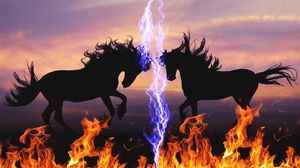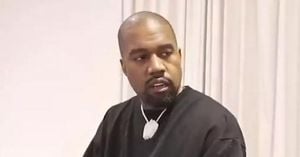The 2024 Paris Olympics has brought breakdancing to the global spotlight, yet for one Australian performer, the moment turned controversial. Rachael Gunn, known as Raygun, faced harsh backlash following her debut at the Games, raising questions about the artistic direction of the sport and the judgment involved.
During the Breaking B-Girls competition, Gunn's unique style, which incorporated moves like the so-called "kangaroo hop," went viral, but not necessarily for the right reasons. The criticisms ranged from harsh ridicule to conspiracy theories surrounding her selection to compete.
The Australian Olympic Committee (AOC) quickly came to her defense, condemning the online hate directed at her, labeling those remarks as bullying and defamatory. They aimed to counteract what they felt was misinformation fueling public animosity against Gunn.
Taking to social media, Gunn expressed her appreciation for supportive messages, stating, "I really appreciate the positivity, and I’m glad I was able to bring some joy to your lives." Her remarks illustrated her intent behind the performance, focusing on creativity rather than conventional acrobatics, which dominated the arena.
Despite the negative fallout, Gunn chose to focus on the support she received, admitting the emotional toll the backlash took on her. "I didn’t realize it would also open the door to so much hate," she admitted, exposing the deep personal impact the controversy had on her life.
Gunn's artistic choices caught the attention of her fans and critics alike. Her style highlighted her confidence and originality, yet it also drew questions about her fittingness to participate at such a monumental event.
Several critics speculated about favoritism, raising concerns about possible undue influence surrounding her participation, particularly due to her connection to Australian dance academia. This speculation intensified the scrutiny surrounding her performance.
Following the backlash, Gunn emphasized her intent was to express herself uniquely, stating, "What I wanted to do was come out here and do something new and different and creative." She recognized the stiff competition and aimed to stand out through sheer creativity rather than relying on conventional techniques.
Yet, amid the uproar, Gunn's performance attracted notable attention, even from celebrities like Snoop Dogg, who commented on the event. This illustrates how, even amid controversy, significant public interest remains focused on her artistic expression.
To combat misinformation, the AOC articulated multiple points clarifying misunderstandings about Gunn's competition history and creative merits. They sought to reinforce her standing within the breaking community and dispel any damaging rumors.
AusBreaking, the national governing body for breaking, also extended their support, addressing allegations of advantages provided by her husband, Samuel Free, during qualifying rounds. Their statement aimed to mitigate the hostile discussions circulating online.
The World DanceSport Federation joined the chorus against cyberbullying directed at Gunn, emphasizing the importance of protecting athletes from similar challenges. They acknowledged the struggles faced by performers and reaffirmed support for mental well-being within the sport.
Throughout the ordeal, Gunn called for some privacy for her family and friends, urging people to stop harassing her close circle. "Please stop harassing my family, my friends, the Australian breaking community, and the broader street dance community. Everyone has been through a lot as a result of this," she pleaded.
This situation illustrates larger discussions within the dance world, particularly related to embracing diverse performance styles and balancing creativity versus traditional expectations. Are the criticisms fair, or do they reflect deep-seated issues within how innovative expression is perceived?
Notably, Gunn did receive recognition from at least one judge for her imaginative expression, underscoring the subjective nature of performance evaluation within the sport. This points to the tension between established performance metrics and the desire for artistic individuality.
Raygun's experience contributes to the evolving narrative of breakdancing, especially as it faces uncertain prospects within future Olympic events. The debate on how to embrace creativity versus conformity has only begun, potentially reshaping breaking's representation globally.
The standout performances from other dancers, like gold medalists Ami Yuasa and Philip Kim, seem overshadowed by the controversy surrounding Gunn. This overshadowing detracts from the accomplishments and dedication of the other competitors who worked tirelessly to reach such high levels.
Famed breakdancers Kwikstep and Rokafella expressed their disappointment at how the discussions about Gunn have overshadowed the successes of other athletes. They noted this situation risks diverting attention away from what should have been celebrated victories for talented dancers who earned their medals through hard work.
While breaking’s inclusion at the Paris Games was seen as a significant step forward, the events surrounding it underscore the sensitive nature of artistic sports. Kwikstep warned against allowing the critiques of one performance to define the broader context of breaking's Olympic debut.
Looking forward, with breaking set to absent for the 2028 Olympic Games, the community seeks to reclaim its narrative following this episode. How the sport chooses to navigate this moment could significantly impact its future recognition and acceptance.
Rachael Gunn embodies both the challenges and opportunities for creative expression within competitive frameworks, reminding us of the personal stakes involved for those seeking to innovate. Her artistic vision has sparked debate, but it also raises important questions about the direction of breaking moving forward.
With performance art as varied as breakdancing, one cannot ignore the cultural significance and expectations intertwined with it. This episode serves as both a cautionary tale and a call to action to honor the roots of the art form, ensuring it respects its origins.
While the road for breaking may seem tumultuous now, passionate dancers and supporters remain excited for what the future holds. Not only will the artistic representation evolve, but it could also lead to greater inclusivity and acknowledgment of diverse voices within the dance community.



